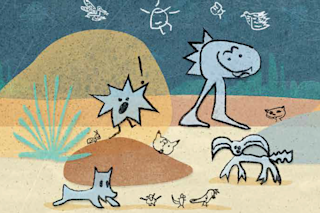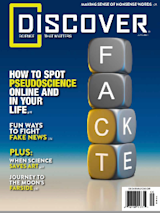This article appeared in the June 2021 issue of Discover magazine as "What’s in a Name? More Than You Think." Subscribe for more stories like these.
I love the word discombobulated. That’s partly because I came to it late. Although the term dates back to at least the 19th century, I don’t recall ever hearing it before 2016. Just trying to utter it aloud perfectly encapsulates its meaning (confused and disconcerted). I usually get about halfway through, to the bob, then lose track of what I’m saying. I don’t think I have ever pronounced discombobulated the same precise way twice. And I always feel a slight sense of relief when I reach the ed without screwing it up, without showing my inner discombobulation.
Most words have no apparent connection to what they signify. As the linguist Steven Pinker puts it, we call a dog “dog” because everyone else does. And ...















